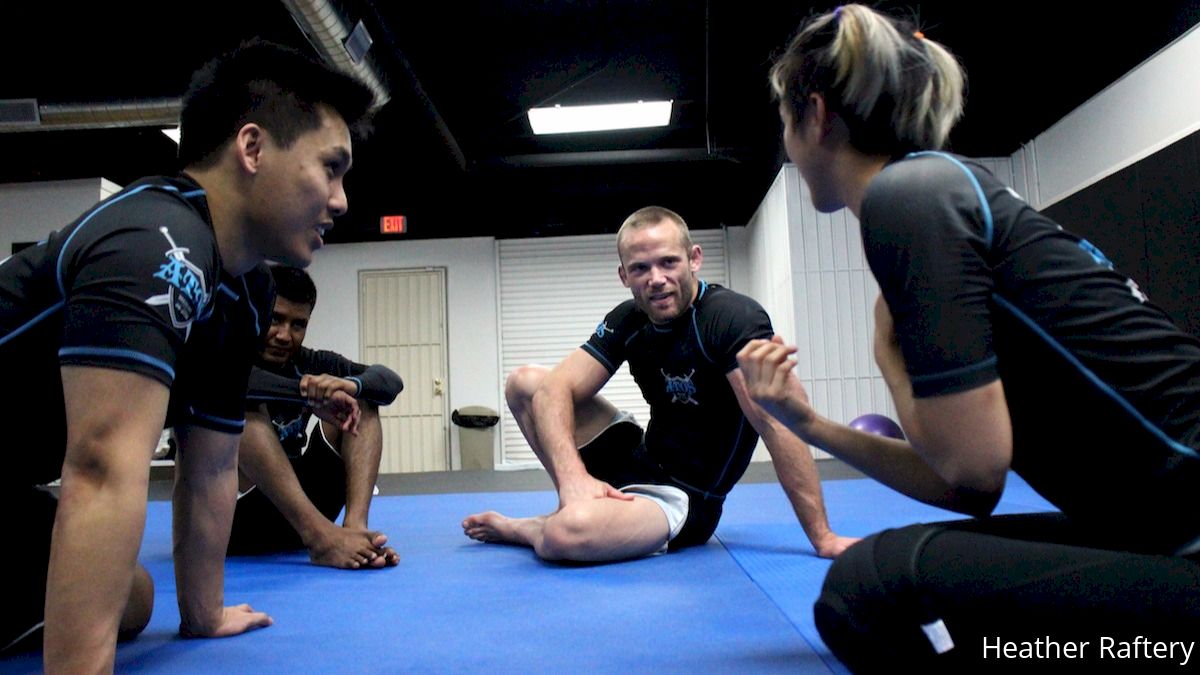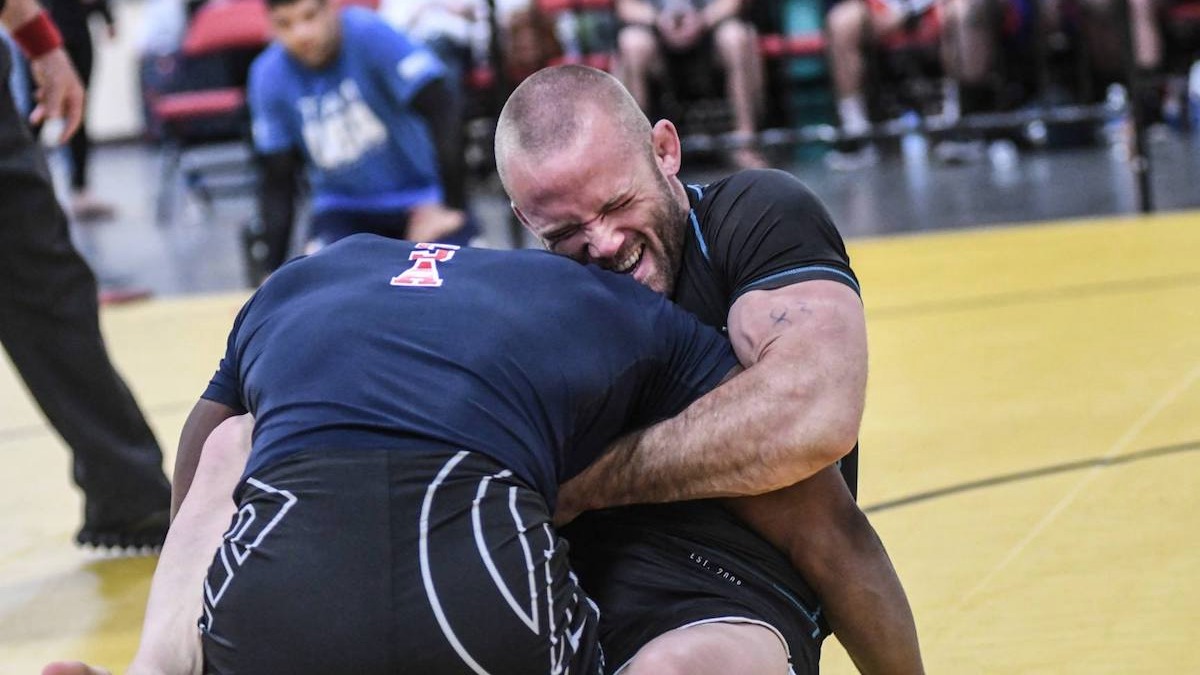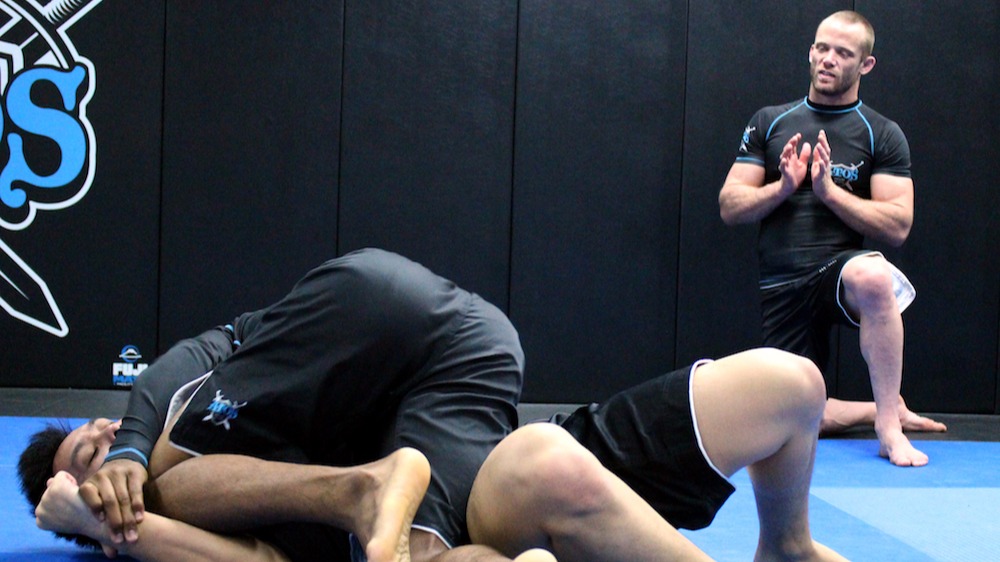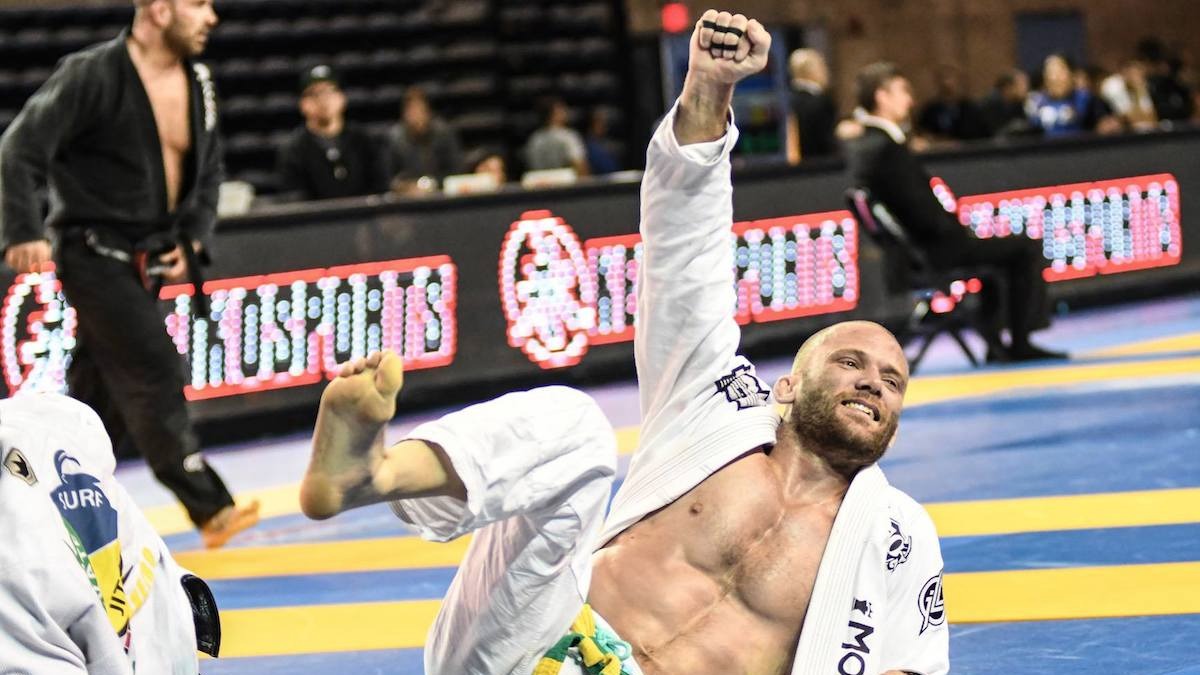Hey, Jiu-Jitsu Competitors, Stop Apologizing For Your Losses
Hey, Jiu-Jitsu Competitors, Stop Apologizing For Your Losses
Have you ever heard a competitor apologize for losing a jiu-jitsu match? Whether you are their teammate, their coach, their family member or friend, I'm sure we have all heard someone apologize for losing a match. I'm here to say that this needs to stop.

Have you ever heard a competitor apologize for losing a jiu-jitsu match?
Whether you are a teammate, a coach, a family member, or friend, I'm sure we have all heard someone apologize for losing a match. I'm here to say that this needs to stop.
As long as you did your best, you have nothing for which to apologize.
I think many competitors deal with an inflated amount of self-inflicted emotional pressure. It's the pressure that they create for themselves when they have a strong desire to win for the sake of pleasing their professors, coaches, teammates, loved ones, or all of the above.
Of course, this is a very natural desire to have. Some people have such a strongly embedded desire to please their parents that they devote their entire lives to it, even well after their parents have passed away. I'm not saying a competitor should completely disregard these feelings, but I think the desire to please one's supporters should not overtake the competition experience as a whole.

Hinger in action. Photo: Chase Smith / FloGrappling
The fact is that I am already proud of them just for signing up, getting out there, and testing themselves against the unknown. That's it.
Once they do that, my proud meter is maxed out. If they perform well and win, it is just an added bonus that I can be happy for them. I will be happy BECAUSE they are happy. It's almost as if my emotions become a reflection of their emotions. If they are happy, I am happy. If they are heartbroken, I am bummed. If they are pissed off, then I am frustrated.
If they are in high spirits after a loss because maybe they had an epic match, then I am happy.
Observing him gave me a lot of insight. I realized that children, like adults, can be very good at masking their internal feelings. So I make it my goal now as a coach to reduce the amount of pressure my students feel when they are competing. It's my goal to make sure they have fun and enjoy the overall experience. This way, they are likely to come back and compete again. And inevitably, they will become well-seasoned, successful competitors.
I always try to remind my students and teammates to have fun at tournaments. This is not just because I think a tournament should be a walk in a park, but I honestly believe that they will perform better if they are not stressed out of their minds. I've witnessed too many times phenomenal jiu-jitsu athletes who paralyze themselves with stress, and they end up performing in a way that is not up to par with their capabilities.

Josh Hinger coaching some of his students at Atos in San Diego. Photo: Heather Raftery
As I attended a recent IBJJF rules seminar, I was delighted to learn that when two teammates decide to close out a division by doing something ridiculous, like reenacting a Street Fighter video game sequence complete with a hadouken finish, they are to be double disqualified.
Managing your stress by remembering to have fun is not an excuse to act like an idiot. We should always remember to carry ourselves in a respectful manner -- respecting ourselves, the tournament, and the referees as well as respectfully representing one's team and coaches.
I think this is a mistake and in the long run will be a detriment to the development of that athlete as a competitor. In short, trying too hard to not try hard as a potential excuse for losing is not a good strategy for jiu-jitsu improvement.

Josh Hinger in winning form at IBJJF 2017 Pans. Photo: Chase Smith / FloGrappling
The point is -- there is always something that you can potentially stress about.
Try to just focus on yourself, on your competition strategy, on your jiu-jitsu, and try to ignore the external things that you cannot control.
Lastly, try to remember, as my professor Andre Galvao says, "You don't always have to be the best; you just have to try your best." As long as you always try your best, keep your head up and do not apologize for taking a loss.
Josh Hinger is an IBJJF 2016 black belt no-gi world champion representing Atos Jiu-Jitsu. Follow him on Instagram and Facebook.
Whether you are a teammate, a coach, a family member, or friend, I'm sure we have all heard someone apologize for losing a match. I'm here to say that this needs to stop.
As long as you did your best, you have nothing for which to apologize.
I think many competitors deal with an inflated amount of self-inflicted emotional pressure. It's the pressure that they create for themselves when they have a strong desire to win for the sake of pleasing their professors, coaches, teammates, loved ones, or all of the above.
Of course, this is a very natural desire to have. Some people have such a strongly embedded desire to please their parents that they devote their entire lives to it, even well after their parents have passed away. I'm not saying a competitor should completely disregard these feelings, but I think the desire to please one's supporters should not overtake the competition experience as a whole.

Hinger in action. Photo: Chase Smith / FloGrappling
If you're happy, I'm happy
As a regular competitor and a coach, I get to experience the competition pressures from both sides. As a competitor, I understand very well the desire to make my coaches, teammates, and family proud. As a coach, I also understand what it is that I want from my students when they compete.The fact is that I am already proud of them just for signing up, getting out there, and testing themselves against the unknown. That's it.
Once they do that, my proud meter is maxed out. If they perform well and win, it is just an added bonus that I can be happy for them. I will be happy BECAUSE they are happy. It's almost as if my emotions become a reflection of their emotions. If they are happy, I am happy. If they are heartbroken, I am bummed. If they are pissed off, then I am frustrated.
If they are in high spirits after a loss because maybe they had an epic match, then I am happy.
Overcoming high expectations
For example, I had a 10-year-old grey belt who would always cry when he would win. I mean, really cry. As if he was injured. And this always evoked a teary emotional response out of me as well. But, this is also a good example of how much internal emotional pressure he was putting on himself. From the outside, he seemed emotionless. But it wasn't until he won that all his emotions would come pouring out of him.Observing him gave me a lot of insight. I realized that children, like adults, can be very good at masking their internal feelings. So I make it my goal now as a coach to reduce the amount of pressure my students feel when they are competing. It's my goal to make sure they have fun and enjoy the overall experience. This way, they are likely to come back and compete again. And inevitably, they will become well-seasoned, successful competitors.
I always try to remind my students and teammates to have fun at tournaments. This is not just because I think a tournament should be a walk in a park, but I honestly believe that they will perform better if they are not stressed out of their minds. I've witnessed too many times phenomenal jiu-jitsu athletes who paralyze themselves with stress, and they end up performing in a way that is not up to par with their capabilities.

Josh Hinger coaching some of his students at Atos in San Diego. Photo: Heather Raftery
The other side of the spectrum
I'm not advocating for an absolutely carefree, "keep it playful" mentality. It's actually infuriating when I see people acting too carefree and too playful at tournaments, as it shows a lack of respect for their opponent, the tournament, and the art.As I attended a recent IBJJF rules seminar, I was delighted to learn that when two teammates decide to close out a division by doing something ridiculous, like reenacting a Street Fighter video game sequence complete with a hadouken finish, they are to be double disqualified.
Managing your stress by remembering to have fun is not an excuse to act like an idiot. We should always remember to carry ourselves in a respectful manner -- respecting ourselves, the tournament, and the referees as well as respectfully representing one's team and coaches.
How competitors sometimes make excuses
I think there are a number of competitive athletes who overly compensate their stress management by acting too playfully or too nonchalantly in such a way that they are no longer putting forth their best efforts. In my observations, these competitors are creating a situation in which if the athlete loses, they can justify their loss in the fact that they were just having some fun and not trying their best.I think this is a mistake and in the long run will be a detriment to the development of that athlete as a competitor. In short, trying too hard to not try hard as a potential excuse for losing is not a good strategy for jiu-jitsu improvement.

Josh Hinger in winning form at IBJJF 2017 Pans. Photo: Chase Smith / FloGrappling
Some advice for dealing with pressure
Internal emotional self-inflicted pressure can manifest itself from all types of situations. It's just a game that your mind plays with itself. If you enter a relatively "easy division," you can stress about losing to someone that you shouldn't. If you enter a very difficult division, you can stress about competing against jiu-jitsu monsters who might embarrass you. If you travel far away, you can stress about not being in peak physical form to compete. If you compete in your hometown, you can stress about performing well in front of all your family and friends.The point is -- there is always something that you can potentially stress about.
Try to just focus on yourself, on your competition strategy, on your jiu-jitsu, and try to ignore the external things that you cannot control.
Lastly, try to remember, as my professor Andre Galvao says, "You don't always have to be the best; you just have to try your best." As long as you always try your best, keep your head up and do not apologize for taking a loss.
Josh Hinger is an IBJJF 2016 black belt no-gi world champion representing Atos Jiu-Jitsu. Follow him on Instagram and Facebook.
Liked this article? You may also enjoy...
- The Nasty Business Of Cutting Weight: Some Advice From A World Champion
- A Question Of Age: An Over 30's Perspective On Adult vs Masters Divisions
- In Defense Of Jiu-Jitsu's Most Hated Rule: The Pros and Cons of Advantages
- How to Manage Your Mind on Tournament Day
- The Brutal, Painful Reality Of Training In A World-Class Jiu-Jitsu Gym
- Beware Of The False Champions With Medals They Don't Deserve
- Are Closeouts Good or Bad For The Sport?